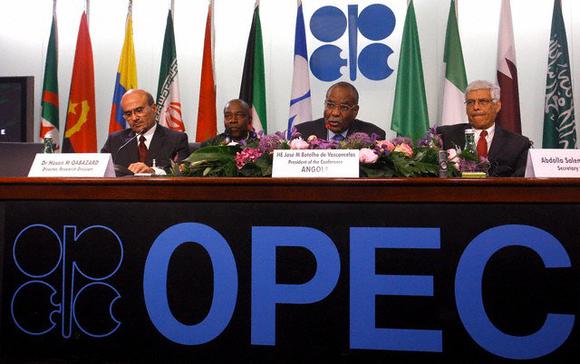
Trump Battles OPEC Over Oil Prices
US President Donald Trump has accused the Organisation of Petroleum Exporting Countries(OPEC) of driving up oil prices, in a fresh swipe at the cartel’s agreement to cap production.
“Oil prices are too high, OPEC is at it again. Not good!” he wrote on Twitter.
Oil prices peaked in late May, hitting the $80 per barrel ceiling on the Brent futures contract and $72.24 on the West Texas Intermediate.
Traders are holding their breath for the June 22 meeting of oil ministers from OPEC member states in Vienna.
In April Saudi Energy Minister Khaled al-Faleh said the global market has the capacity to absorb higher oil prices — a remark that drew a swift reaction Trump.
“With record amounts of Oil all over the place, including the fully loaded ships at sea, Oil prices are artificially Very High! No good and will not be accepted!” Trump tweeted on April 20.
OPEC producers and non-OPEC countries struck a deal in 2016 to trim production by 1.8 million barrels per day to reduce a global glut of oil.
The deal, which is due to run out at the end of 2018, has succeeded in boosting oil prices above $70 a barrel from below $30 a barrel in early 2016.
The comment comes ahead of a meeting next week of oil ministers from Opec and Russia who are debating an increase in output after more than a year of enacting cuts.
It also follows a similar tweet on April 20 when he said: “oil prices are artificially Very High” due to the supply curbs by Opec and its allies outside the cartel.
The Trump administration has quietly asked producers to increase production to make up for any shortfall from Iran which is under a new round of US oil sanctions.
Hedge fund manager Pierre Andurand responded to his tweet saying a price spike awaits as the number of countries with excess production capacity are few.
“Opec has the lowest spare capacity ever right now. There is going to be a real issue. Prices will be above $150 in less than 2 years. Eventually higher prices will bring more supply. But right now [there is] too little supply coming over the next few years despite US supply growth,” he said
